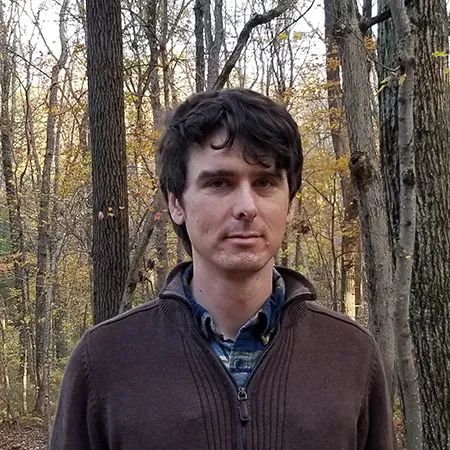This thematic workshop invites scholars and professionals analyzing, evaluating, and/or synthesizing the natural, social, or actionable elements associated with watershed management and governance. This may include but is not limited to the biophysical elements (e.g., quality, quantity, flow, effects of climate change, etc.), the social significance (e.g., access, cost, and right to clean water, etc.), and the strategies (e.g., resource economics, governance) to significantly improve understanding or inform socio-environmental decision making or policies.
Workshop Agenda:
This workshop's Distinguished Scholars are Dr. James Knighton of SESYNC; Dr. Elizabeth Koebele of the University of Nevada, Reno; John Sabo, Arizona State University; Mark Lubell, University of California, Davis; and Amy Rosemond, University of Georgia. Learn more about them below.
How to Apply
Please review the eligibility and selection criteria before submitting an application.
Applicants are asked to complete a short questionnaire and submit the following items as a single PDF:
- Statement of Interest (no more than two pages)
- Describing why the applicant would like to attend
- Describing the applicant’s past and current research or related work in the field
- Discussing how the applicant would benefit from participating in the selected S-E thematic workshop, including outlining challenges or constraints encountered so far
- Discussing what the applicant may contribute to the workshop, and what they hope to gain from this experience
- Demonstrating an enthusiasm and openness to new, inter-, or transdisciplinary interactions
- Proving a strong commitment to attend the workshop in its entirety
- Applicant’s full C.V.
- Names and contact information for two professional references.
Applications missing any materials or exceeding page limits will not be considered.
Visit the opportunity page to apply.
The National Socio-Environmental Synthesis Center, funded through an award to the University of Maryland from the National Science Foundation, is a research center dedicated to accelerating data-driven scientific discovery at the interface of human and ecological systems. Visit us online at www.sesync.org and follow us on Twitter @SESYNC.
Presenters
James Knighton
Dr. James Knighton is an Assistant Professor in the Department of Natural Resources and the Environment at the University of Connecticut. James researches plant-soil-water interactions through field experimentation and numerical modeling. He specifically studies how plant species compete for soil water, the complex flow paths water takes between rainfall and streamflow, and the social implications of these processes. While a postdoc at SESYNC, his research focused on evaluating why forest cover change has varied impacts on flooding risks worldwide. Specifically, he is working to understand how...
James Knighton
Dr. James Knighton is an Assistant Professor in the Department of Natural Resources and the Environment at the University of Connecticut. James researches plant-soil-water interactions through field experimentation and numerical modeling. He specifically studies how plant species compete for soil water, the complex flow paths water takes between rainfall and streamflow, and the social implications of these processes. While a postdoc at SESYNC, his research focused on evaluating why forest cover change has varied impacts on flooding risks worldwide. Specifically, he is working to understand how local hydrology and population demographics come together to influence the generation of flooding insurance claims from urban environments in New York State through a collaboration with the New York Water Resources Institute. James is a registered Professional Engineer (PE) who earned his PhD in Environmental Engineering from Cornell University (2019) and an MA in Environmental Studies from the University of Pennsylvania (2013). Prior to Cornell, he worked as a PE for eight years in the nuclear industry and government performing risk analysis for power generation facilities and urban environments.
External Links:
james.knighton@uconn.edu
http://www.jamesknightonhydrology.com/
https://nre.uconn.edu/james-knighton/
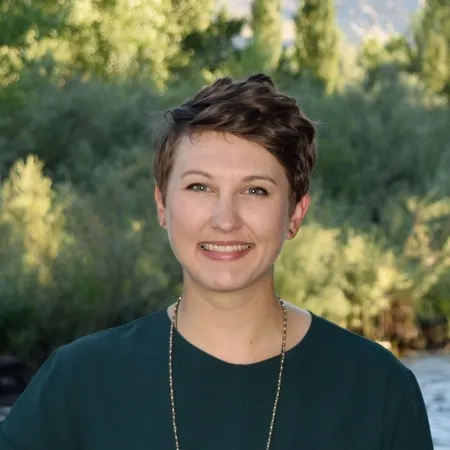
Elizabeth Koebele
Dr. Elizabeth Koebele is an Assistant Professor of Political Science at the University of Nevada, Reno. She is also a faculty affiliate in the Graduate Program for Hydrologic Sciences and the interdisciplinary Environmental Sciences graduate program. She holds B.A.s in English literature and secondary education from Arizona State University, where she was a proud first-generation college student, and an M.S. and Ph.D. in Environmental Studies (policy focus) from the University of Colorado Boulder. Dr. Koebele teaches undergraduate and graduate courses in the public policymaking process and...

Elizabeth Koebele
Dr. Elizabeth Koebele is an Assistant Professor of Political Science at the University of Nevada, Reno. She is also a faculty affiliate in the Graduate Program for Hydrologic Sciences and the interdisciplinary Environmental Sciences graduate program. She holds B.A.s in English literature and secondary education from Arizona State University, where she was a proud first-generation college student, and an M.S. and Ph.D. in Environmental Studies (policy focus) from the University of Colorado Boulder. Dr. Koebele teaches undergraduate and graduate courses in the public policymaking process and environmental politics and policy. Much of her recent research uses mixed methods to better understand how collaborative approaches to environmental governance shape the policy process and its outcomes, especially in the context of arid river basins. She has published on topics such as water governance and policy in the western United States (Colorado River and Lake Tahoe Basins), sustainable urban water management, disasters and hazards policy (wildfire and flooding), and environmental regulatory processes. Dr. Koebele has recently been named co-PI on a $1.5 million grant from U.S. National Science Foundation to study how urban water utilities transition to more sustainable management practices—a project that she and her colleagues initially developed while participating in a SESYNC graduate student pursuit. She is also currently a co-PI on a $5 million grant from the U.S. Department of Agriculture to investigate the impacts of changing snowpack in the West on a major water allocation institution called prior appropriation. When not working, Dr. Koebele loves exploring the Eastern Sierra Nevada region on her bicycle.
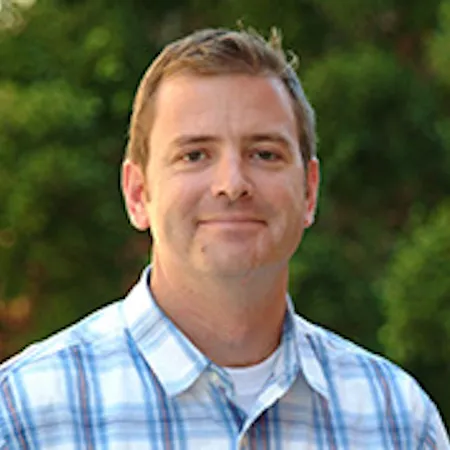
John Sabo
Dr. John Sabo's research employs large-scale field experiments, stable isotopic tracers, and lab physiology to understand links between the water cycle and animal performance, abundance, and species diversity. Most of his work focuses on riparian and river ecology. For example, students in John's lab study links between groundwater aquifers and animals in riparian forests. Here we are finding that riparian trees connect groundwater to riparian animals that live above ground, and thereby alleviate water-stress for these organisms. John also has projects that examine the effects of dams on...

John Sabo
Dr. John Sabo's research employs large-scale field experiments, stable isotopic tracers, and lab physiology to understand links between the water cycle and animal performance, abundance, and species diversity. Most of his work focuses on riparian and river ecology. For example, students in John's lab study links between groundwater aquifers and animals in riparian forests. Here we are finding that riparian trees connect groundwater to riparian animals that live above ground, and thereby alleviate water-stress for these organisms. John also has projects that examine the effects of dams on energy flow through aquatic food webs. One aspect of this work is to understand how dams alter the relative dependence of top predators on aquatic and terrestrial sources of carbon, and thus energy. All of this work is geared towards understanding the sustainable management of water resources for humans and biodiversity. John teaches classes in biometry, experimental design, field ecology, and water and sustainability.
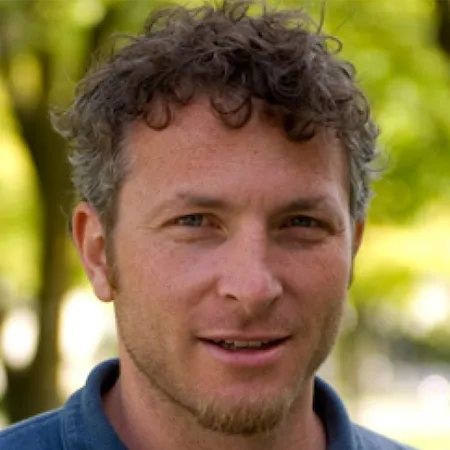
Mark Lubell
Dr. Mark Lubell's research focuses on human behavior and the role of governance institutions in solving collective action problems and facilitating cooperation. The collective action problems associated with environmental policy provide a laboratory for his research. His current projects include watershed management, environmental activism, agricultural best management practices, and institutional change in local governments. He also dabbles in experimental economics and simulation techniques to further explore collective action theory. See his recent talk at Yale here: http://www.des.ucdavis...

Mark Lubell
Dr. Mark Lubell's research focuses on human behavior and the role of governance institutions in solving collective action problems and facilitating cooperation. The collective action problems associated with environmental policy provide a laboratory for his research. His current projects include watershed management, environmental activism, agricultural best management practices, and institutional change in local governments. He also dabbles in experimental economics and simulation techniques to further explore collective action theory. See his recent talk at Yale here: http://www.des.ucdavis.edu/faculty/lubell/Professional/LubellYale.mov
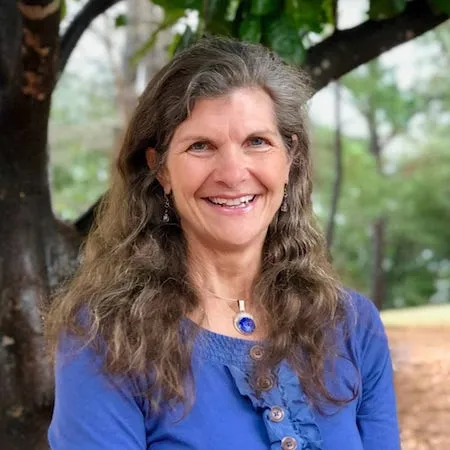
Amy Rosemond
Dr. Amy Rosemond is a Professor in the Odum School of Ecology at the University of Georgia. Amy’s research program has been motivated by society’s need for healthy, resilient freshwater ecosystems and the goods and services they provide. Her work has been aimed at identifying the factors that maintain, diminish or improve the health of aquatic ecosystems. She has been successful at identifying mechanistic understandings of aquatic ecosystem functions and how they change due to stressors like excess nutrients, temperature and other non-point source pollutants. Amy has collaborated with others...

Amy Rosemond
Dr. Amy Rosemond is a Professor in the Odum School of Ecology at the University of Georgia. Amy’s research program has been motivated by society’s need for healthy, resilient freshwater ecosystems and the goods and services they provide. Her work has been aimed at identifying the factors that maintain, diminish or improve the health of aquatic ecosystems. She has been successful at identifying mechanistic understandings of aquatic ecosystem functions and how they change due to stressors like excess nutrients, temperature and other non-point source pollutants. Amy has collaborated with others to conduct ecosystem-scale experimental manipulations, to establish landscape-scale patterns in stream health due to watershed urbanization, and quantify the effects of flow variability, temperature and nutrients on aquatic organisms and ecosystem functions.
-
How to Apply
Applicants are asked to complete a short questionnaire and submit the following items as a single PDF:
- Statement of Interest (no more than two pages)
- Describing why the applicant would like to attend
- Describing the applicant’s past and current research or related work in the field
- Discussing how the applicant would benefit from participating in the selected S-E thematic workshop, including outlining challenges or constraints encountered so far
- Discussing what the applicant may contribute to the workshop, and what they hope to gain from this experience
- Demonstrating an enthusiasm and openness to new, inter-, or transdisciplinary interactions
- Proving a strong commitment to attend the workshop in its entirety
- Applicant’s full C.V.
- Names and contact information for two professional references.
Applications missing any materials or exceeding page limits will not be considered.
